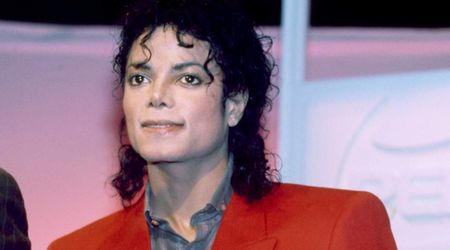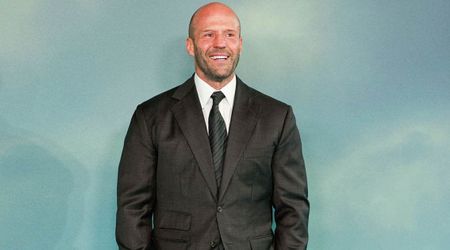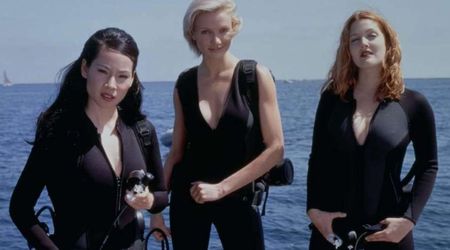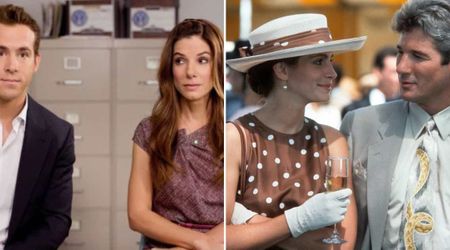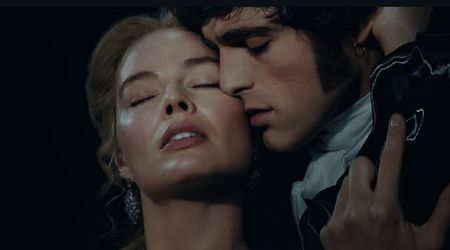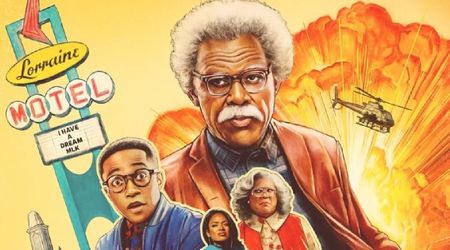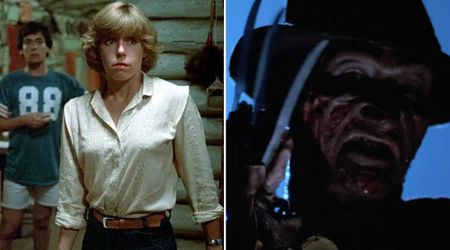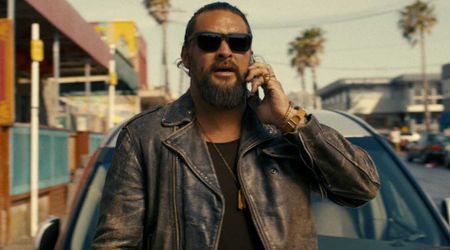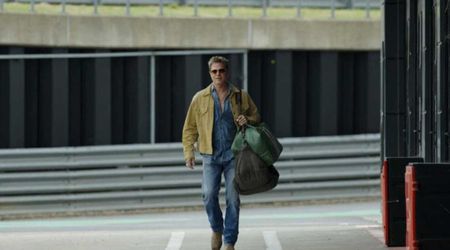The Chappaquiddick incident: An accident, a death, and a conspiracy theory that ruined Ted Kennedy's political career

28-year-old Mary Jo Kopechne worked on the 1968 presidential campaign for Senator Robert F Kennedy. The young woman had certainly made an impression in the more elite circles in Washington. She had worked for a senator in Florida before she moved to Kennedy's Senate staff later on. She had proven herself to be brilliant by helping write an anti-Vietnam speech for RFK and she even helped write the speech that would announce his candidacy for president. Unfortunately, though, everything started going downhill for Kopechne after she met RFK. A year later she attended a party on the Chappaquiddick Island on July 18, 1969. The island is located close to Martha's Vineyard. The events at this party, however, had dramatic consequences.
Edward "Ted" Kennedy, the last son of Joseph Kennedy, was still alive at the time the infamous party took place. Joseph P Kennedy had died during the war and John and Robert Kennedy had been assassinated. Ted was the only political figure left in the family. He was a sitting US senator from Massachusetts and had a potential to run for the presidency in the future, reported the Smithsonian.com.
Ted was the host of the ill-fated party that brought the women together for a reunion. Joseph Gargan, Kennedy's cousin, along with Paul Markham, a former US Attorney for Massachusetts, were also present at the party. Towards the end of what started off as a fun night, however, tragedy struck. Ted's car overturned at a small bridge and ended up landing upside-down in the water. He survived but his young passenger, Kopechne, drowned. The real questions still haunting the Kennedy family to this day, like the conspiracy behind the JFK assassination, are pertinent to what happened that night. What actually happened on the bridge? Was Ted drunk when he was driving? What was Kopechne doing alone with him in the first place? The details surrounding the incident are still mysterious. Ted, however, reported what happened to the police 10 hours after it occurred.
The mysterious events of that night put a dark mark on Ted's political career and this is what the film Chappaquiddick, starring Jason Clarke as Ted Kennedy, speaks about. The scandal made him and the Democratic party very cautious and the incident was used to blame his political failure for many years after that. Kennedy, however, said that the incident that night "was not a determinant" in his decision to not run for president in 1980, in his autobiography.
Taylor Allen and Andrew Logan, the screenwriters of the film, believed that the drama surrounding the incident was the perfect subject for the film because it spoke about the disposability of women, the unreal expectations from the Kennedy family, corruption by those in power, and how the media covered up a big political scandal.
John Curran, the director, said that he and the two writers did not want to make a documentary about the subject and instead chose to go as close to the original events as possible. The script was based on the almost 1000-page inquest that was released by the Massachusetts Supreme Judicial Court in 1970. Curran said: "The two people who really know what happened that night are dead: Ted and Mary Jo. And the others around them, the ones that are still alive, they aren’t going to say anything."
Suspicions were aroused once it became known that Ted had waited for over 10 hours before he reported the matter to the police. The question everybody's mind being - why did he wait?. Ted, later on, attributed this delay to dealing with physical and emotional shock and that he was not thinking clearly. This started the talk about a cover-up and that Ted and his press team were hushing up the incident so that it wouldn't get in the way of his presidential run if he decided to run.
Gwen Kopechne, the mother of the young woman who tragically lost her life that night, told the Boston Globe: "Sometimes I’d like to scream a lot but I’m trying to hold it back. It would be nice if somebody spoke up." She also told another magazine that Ted's aides had tried to get Mary Jo's body from the submerged car and that they didn't report the incident as well. She said: "Gargan and Markham not only failed to get immediate help but also let the senator swim back alone to report the accident from Edgartown. This is a big hurt, the nightmare we have to live with for the rest of our lives: that Mary Jo was left in the water for nine hours. She didn’t belong there."
The older Kopechne never got any of the answers she was looking for about her daughter's death. The reason why this incident did not get much traction in the news is that it happened at the same time as the Apollo 11 landing. Allen said: "It was the greatest moment in John F. Kennedy’s presidential [legacy] happening at the worst possible moment for Ted-Kennedy-the-senator’s potential legacy.” The media was already distracted and this gave Ted's team the perfect opportunity to do some damage control and cover up what happened even further. The moment the news of the moon landing faded from the spotlight, the story of Ted and Kopechne took center stage.
Curran and the producers of the film tried to put in as much of the old news footage in the film as possible by also including newspaper headlines that were originally used. The film also talks about the strain in Ted's relationship with his wife, Joan, who also happened to be pregnant at the time. In the end, she had a miscarriage and blamed the car crash for it. She had also told the United Press International in an interview: "I believe everything Ted said." Joan did not bother about the rumors that Kennedy and Kopechne had gone for a midnight swim together shortly before the accident took place.
The case reached a fever pitch when some allegations rose that the gathering featured married men and single women getting together on the night of the infamous party. The aftermath also affected those who had attended the party the night that Kopechne died. Susan Tannenbaum, one of the people who worked for Robert Kennedy's campaign, was also at the party. She later said: "You can’t begin to understand what it’s been like. I place a tremendous value on the right of privacy, but suddenly I’m infamous. The real meaning of what you are and what you value remains intact inside yourself; but there you are splashed all over the papers. How would you feel if a reporter called your mother at 8 a.m. and asked whether she approved of her daughter’s conduct in spending the night with a group of married men?"
It was this part of the party that seemed to annoy the screenwriters more than anything else. This was the era where women were only entering the workforce and they were doing so in droves. The press at that time seemed to find pleasure in objectifying women even more for this. Allen said: "[Kopechne] was an intelligent, strong woman who worked for the Bobby Kennedy campaign in a high capacity and did really great work, including transcribing and then adding to the speech he gave about Vietnam."
Ted appeared in court in the end and pleaded guilty to the charge of leaving the scene of the accident. The presiding judge at the time, Judge James Boyle, was the one who sentenced him to a minimum of two months in prison. Ted never actually served any jail time because the judge then suspended the sentence. Boyle had said: "He has already been and will continue to be punished far beyond anything this court can impose—the ends of justice would be satisfied by the imposition of the minimum jail sentence and the suspension of that sentence, assuming the defendant accepts the suspension." The defense team accepted the suspension following this.
There was never a public inquest into Mary Jo Kopechne's death and Ted even made a televised speech about the accident later. This speech is one of the few scenes that screenwriters for the film took liberty to twist the facts a little. The movie shows Gargan, Ted's cousin, trying and failing to convince him to read out a resignation letter instead of going on television. Allen said: "We have no evidence in the research to back that up, although it’s evident that it was considered."
The Chappaquiddick incident had been the butt of insults from the conservative politicians ever since it happened and this happened especially when one of their own members was scrutinized for a scandal in D.C. Pennsylvania. Republican and White House staff member in President Ronald Reagan's office, Faith Whittlesey, recalled that the Chappaquiddick incident would be "the end of Kennedy" and that he would be barred from running for president for the rest of his career. The story made regular appearances to try and find the answers to the questions regarding the case and it plagued Ted till the day he died in 2009 as a senator.
Curran was obviously nervous about talking about a person whose political achievements he looked up to even though there are still many conspiracy theories about what happened that night which includes a theory that speaks about a third person in the car. He knew the risks but he still felt like this was a story that had to be told. He said: "Whether you’re on the left or right side of the aisle, it’s imperative that we take a pretty hard, unvarnished look at our heroes these days. The time is done to let all these guys skate by. I think if this story happened now, it would overshadow the moon landing."
The reverse of this, however, was the one that proved to be true back in the day. The last scene of the film shows archival footage of a man-on-the-street style interview that was conducted in Boston to see how many people would still think of voting for Ted even after the Chappaquiddick incident. The majority of those who were interviewd said "yes".

